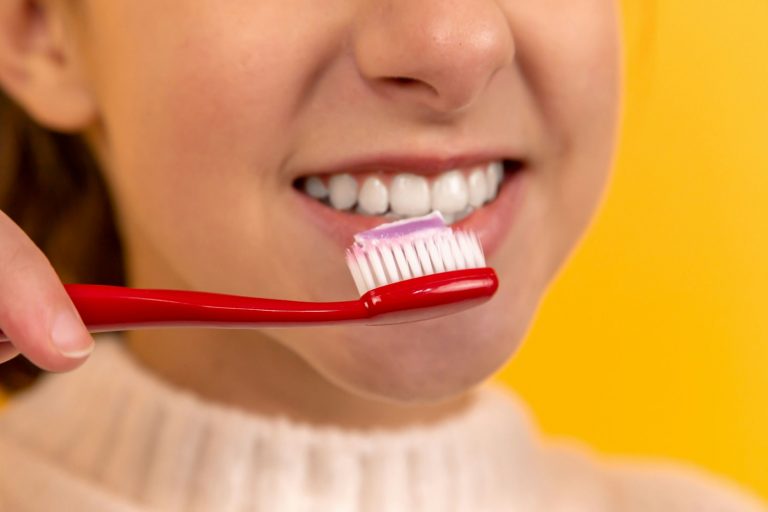Maintaining optimal oral health is not just about the aesthetic appeal of a bright smile. It also serves as a critical component of your holistic health. Neglecting dental hygiene can precipitate a cascade of adverse health outcomes, including heart disease, diabetes, and respiratory infections, underscoring the interconnectedness of oral health and systemic well-being. This interrelation highlights the necessity of a comprehensive dental care routine.
By prioritizing oral health, you can enhance your dental condition and fortify your defense against a spectrum of chronic diseases, elevating your overall quality of life.
Below are five essential dental care tips recommended by leading professionals in the field to help ensure your oral hygiene is on the right track.
Story Stages
1. Adopt a Thorough Oral Hygiene Routine
A cornerstone of dental health is the daily maintenance of your teeth and gums. This involves more than just brushing. For a complete oral hygiene routine, brushing your teeth at least twice a day with fluoride toothpaste is recommended. Fluoride is essential as it strengthens the tooth enamel, making it less prone to decay.
In addition to brushing, flossing once a day is crucial to remove plaque and food particles from between the teeth and under the gum line, areas where a toothbrush can’t reach. Using an antibacterial mouthwash can also help reduce bacteria that cause plaque and gum disease.
In addition to adopting a thorough oral hygiene routine, engaging with a dental professional for regular check-ups and cleanings is integral to boosting your hygiene routine and maintaining oral health. During these visits, dentists can provide expert dental solutions tailored to individual needs, including professional cleanings, fluoride treatments, and guidance on brushing and flossing techniques. These preventive measures can significantly reduce the risk of dental problems, ensuring your oral hygiene remains at its best.
2. Pay Attention to Your Diet
What you eat plays a significant role in your dental health. For instance, foods high in sugar and carbohydrates can contribute to tooth decay by fueling the bacteria that cause dental plaque. To protect your teeth, limit your intake of sugary snacks and beverages.
Instead, choose a diet rich in fruits, vegetables, lean proteins, and whole grains. These foods can contribute to overall health and help in saliva production, which naturally cleanses the mouth and helps neutralize acids. Drinking plenty of water throughout the day, especially after meals, can also help wash away food particles and bacteria.
3. Don’t Neglect Your Tongue
The tongue, often overlooked in oral hygiene routines, is a critical area where bacteria thrive, significantly impacting breath freshness and dental health. The textured surface of the tongue traps food particles and bacteria, which fosters an environment conducive to bad breath and potentially accelerating dental decay.
Incorporating tongue cleaning into daily oral care, using a toothbrush with a dedicated tongue cleaner or a specialized tongue scraper, can effectively dislodge this bacterial film. Regular tongue cleaning combats halitosis and enhances the overall oral microbiome balance.
This practice complements brushing and flossing, contributing to a holistic approach to oral hygiene that ensures the mouth’s entire ecosystem is addressed, maintaining its health and freshness.
4. Use Dental Products Wisely
Discerning the most effective and suitable options is paramount in a market inundated with several dental care products. Opting for toothpaste and mouthwashes infused with fluoride and endorsed by organizations like the American Dental Association (ADA) Seal of
Acceptance ensures adherence to stringent safety and efficacy standards.
Moreover, choosing a toothbrush with soft bristles is equally crucial to prevent gum and enamel damage, safeguarding against aggressive brushing. It’s also essential to regularly update your toothbrush, ideally every three to four months or at the first sign of wear, to maintain its effectiveness in plaque removal.
Overall, intelligent product choices, guided by dental professional recommendations and adherence to ADA guidelines, play an instrumental role in fortifying oral health, preventing dental issues, and promoting a healthy oral environment.
5. Protect Your Teeth from Physical Harm
Engaging in physical activities and sports, while beneficial for overall health, introduces risks to dental integrity. Because of this, it’s crucial to implement protective measures such as wearing a mouthguard, which can significantly mitigate the risk of dental injuries, preserving teeth from impacts and trauma.
Beyond sports, it’s crucial to avoid using teeth as substitute tools for opening packages or bottles, a common habit that poses a risk for chips and fractures. If you are experiencing bruxism, or nighttime teeth grinding, consulting a dental professional for a custom-fitted mouthguard can prevent the wear and potential damage to teeth. Adopting these protective practices ensures the longevity and health of teeth, safeguarding them against avoidable physical harm and contributing to lasting dental well-being.
Takeaway
Incorporating these dental care tips into your daily routine can significantly impact oral health. Regular visits to the dentist for check-ups and cleanings, combined with proper at-home care, are key to preventing dental issues and maintaining a healthy smile. Remember, taking care of your oral health is an investment in your overall well-being.
